I spent the better part of the past year and a half reading literature in translation: The Brother’s Karamazov, The Iliad and The Odyssey, The Aeneid, and The Divine Comedy.
From Russian to Ancient Greek, Latin, and Italian, I wanted to choose the best translation that would let me abandon myself to the experience of reading these works for the first time.
If you are anything like me, then you like to make up your own mind about things. So instead of doing a lot of research or asking other people what they like, I have a simple way I go about choosing the right translation. And now, I'm going to share it with you so you can easily find translations that work for you.
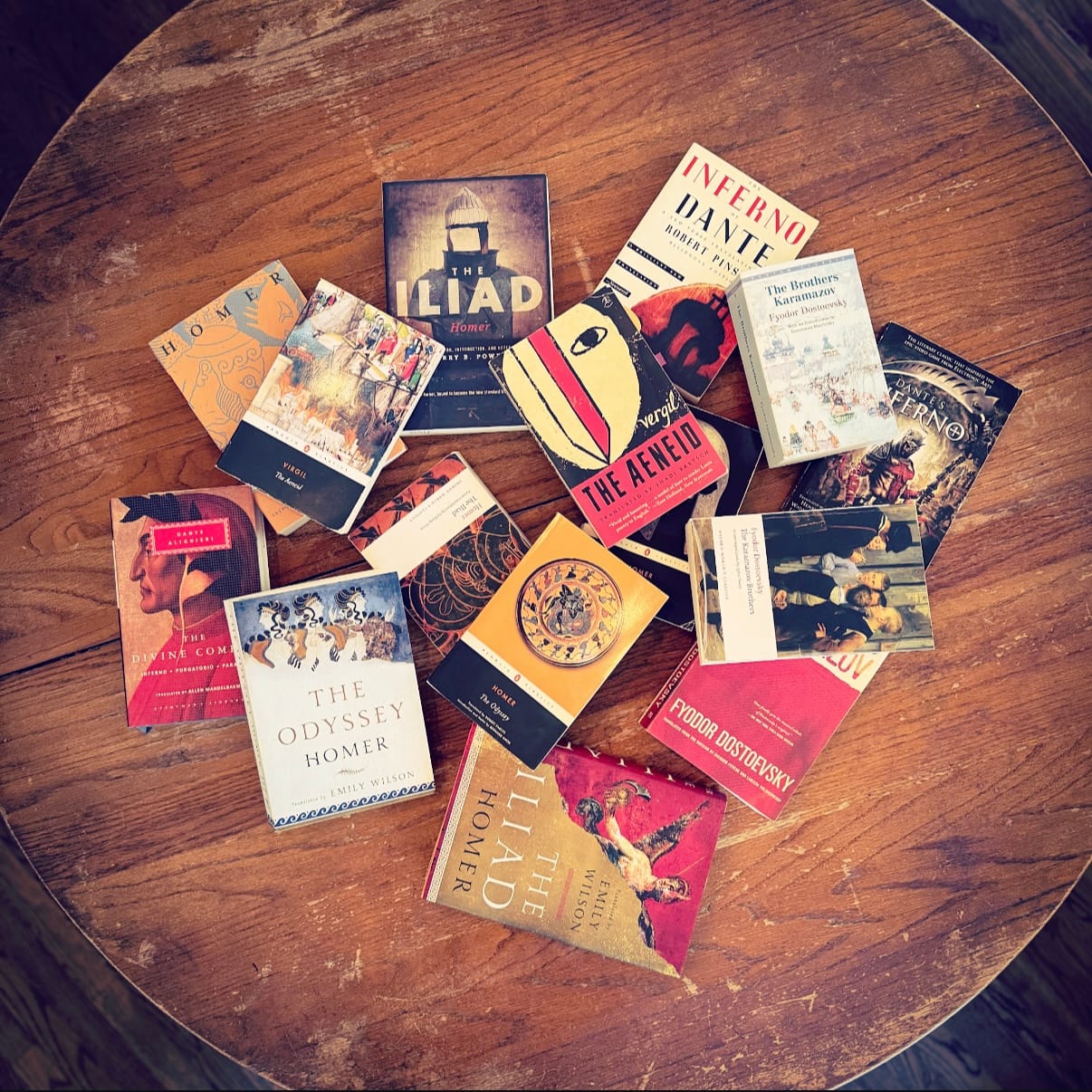
How to choose a translation that works for you.
Step 1: Gather multiple translations.
The first thing you want to do is gather samples (or copies) in all the translation you think you might be interested in reading. Sound complicated? It's not. You can easily and quickly pull up multiple samples of each translation online.
If you do want to hold the books in your hand, then make a quick trip to your local library or (used) bookstore.
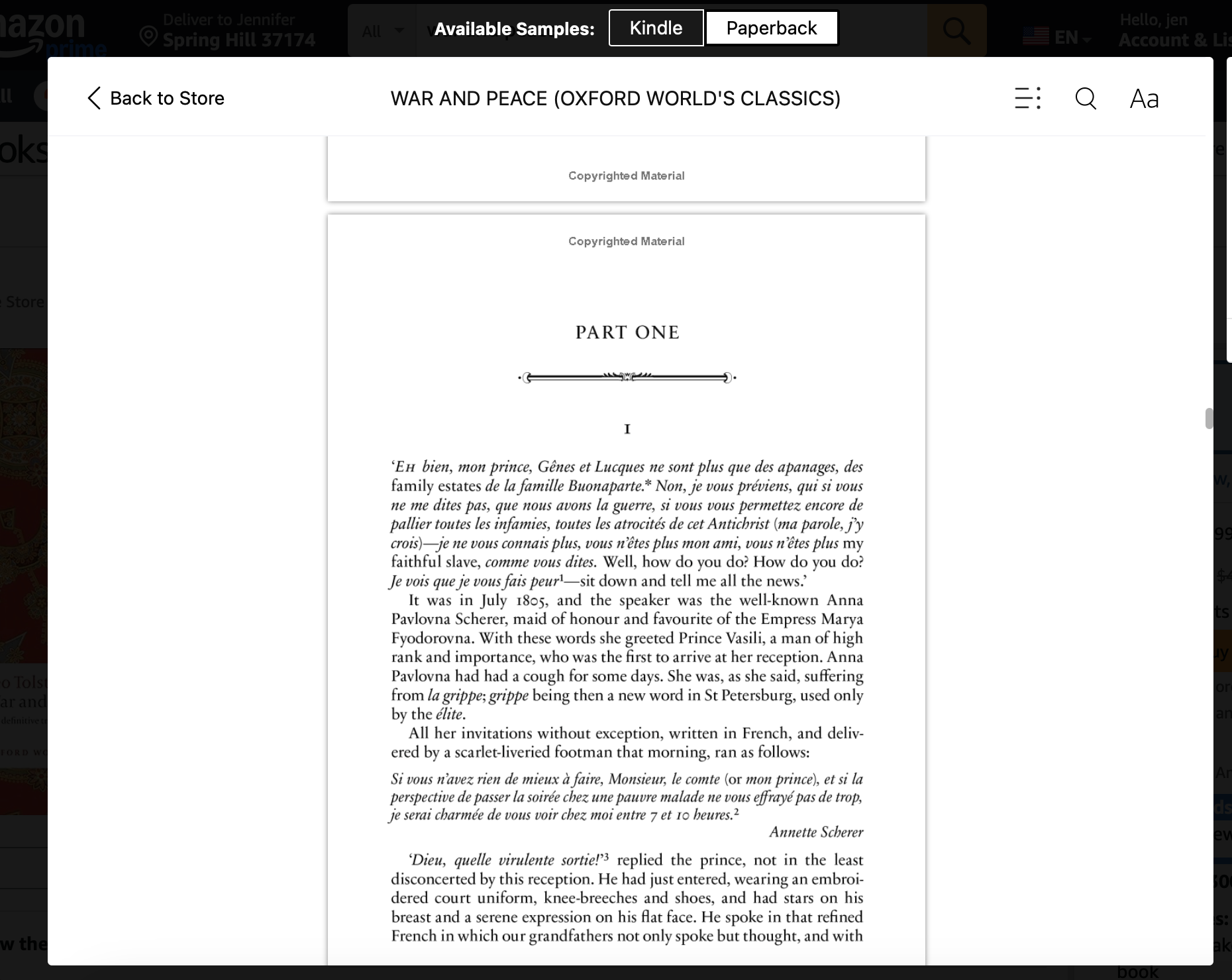
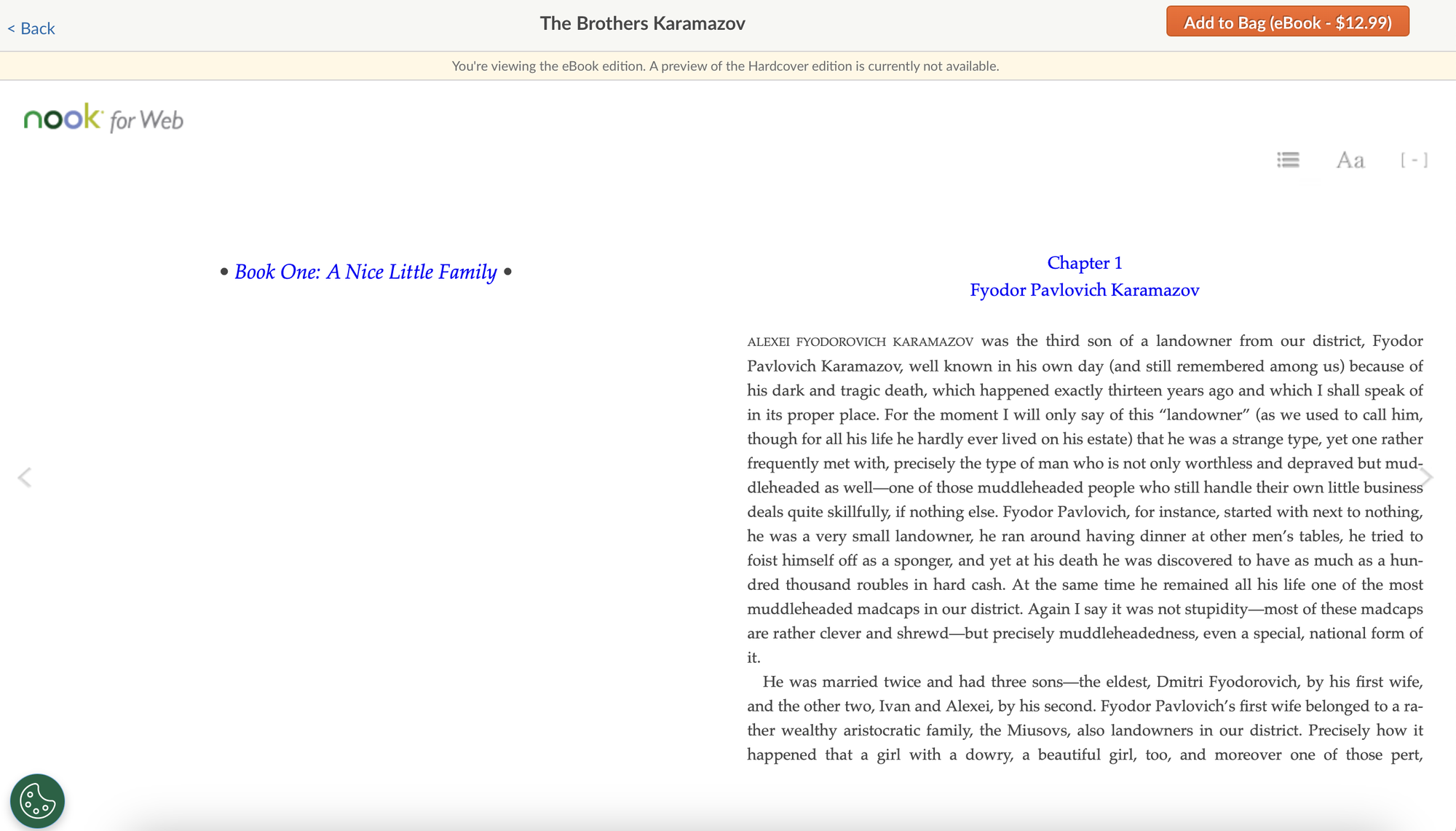
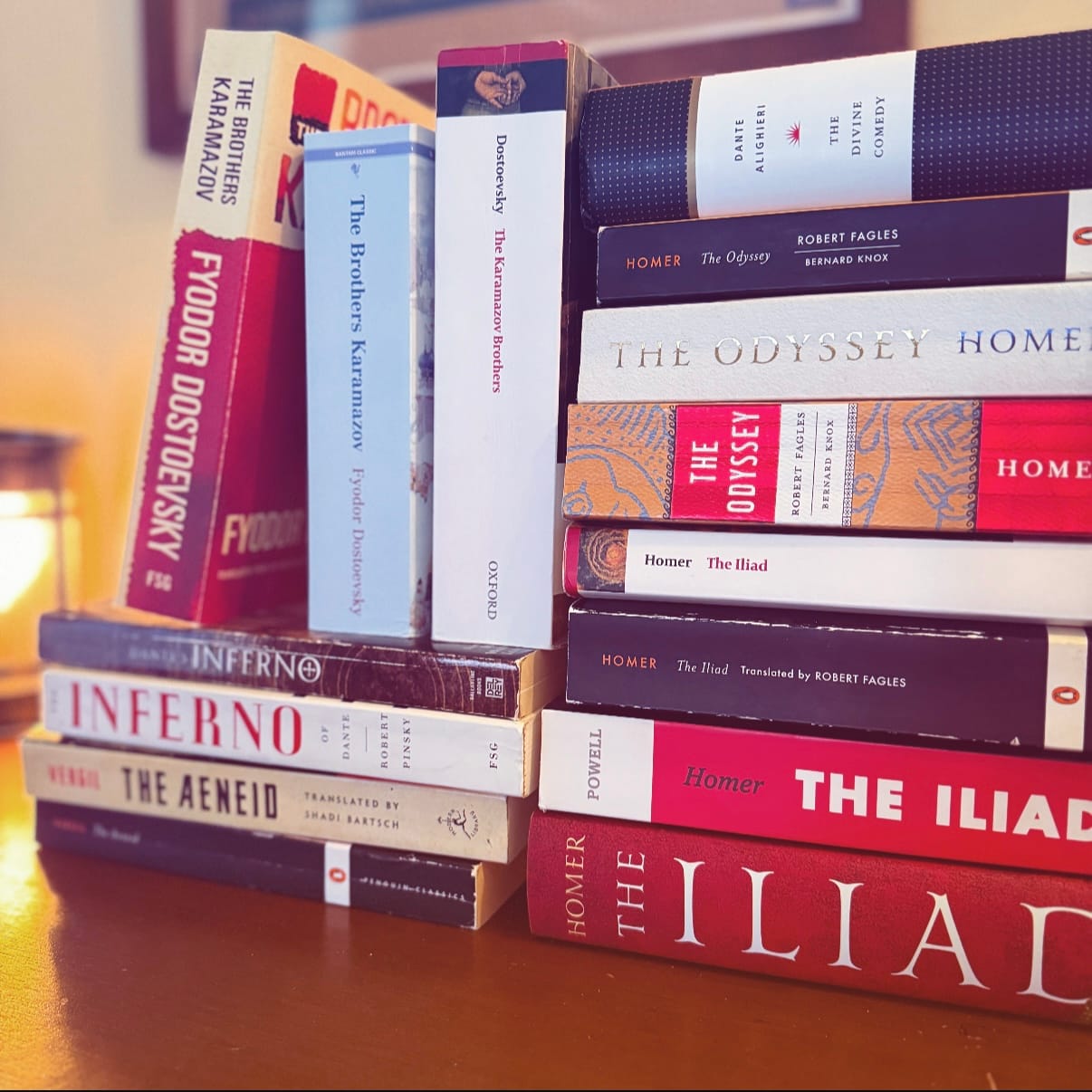
Step 2: The (easy-peasy) process
Once you have all the translations in front of you, it is time to start the elimination process.
Read the first paragraph in each translation (or, if it is epic poetry, a few lines or a section).
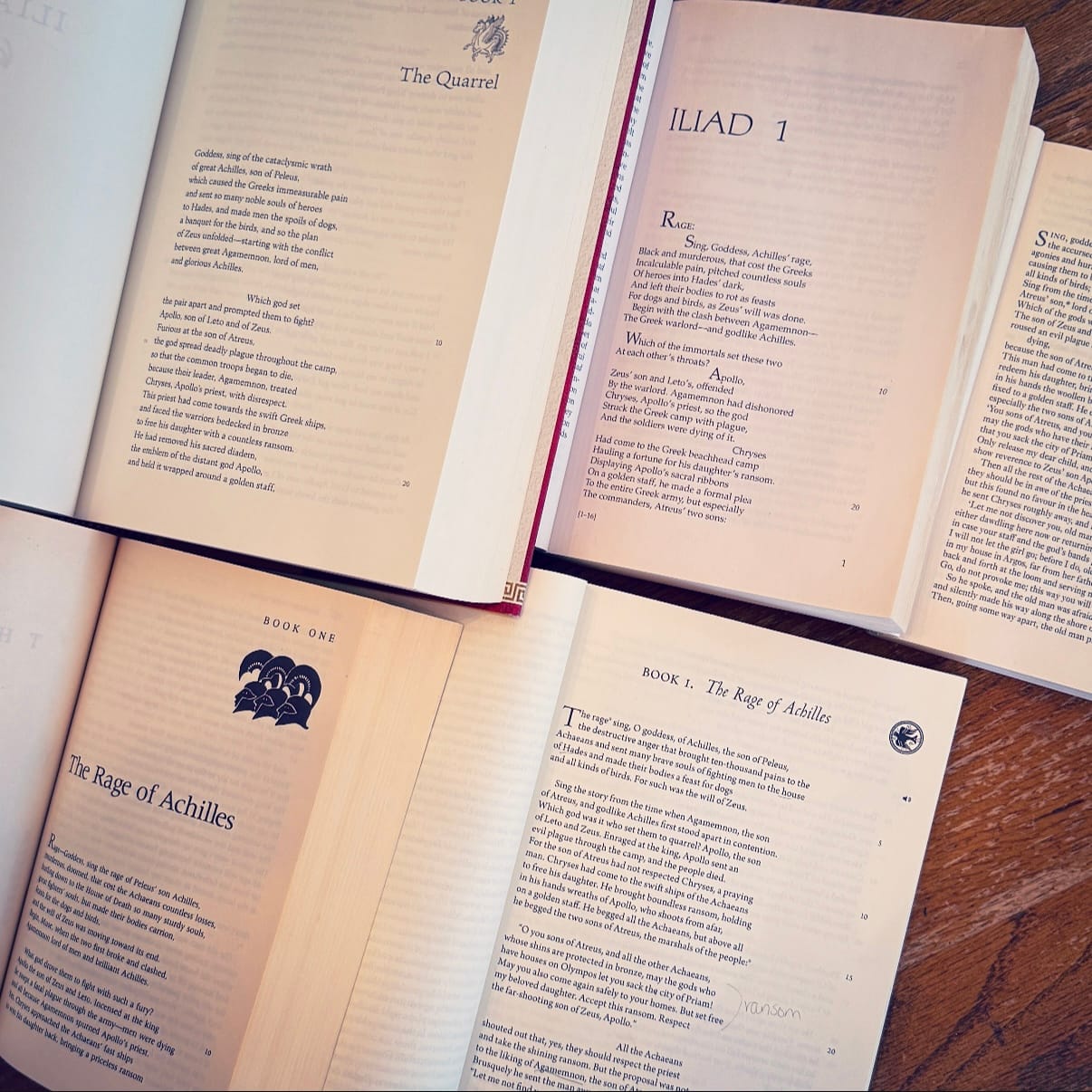
Then go back and read the second paragraph, again in each translation.
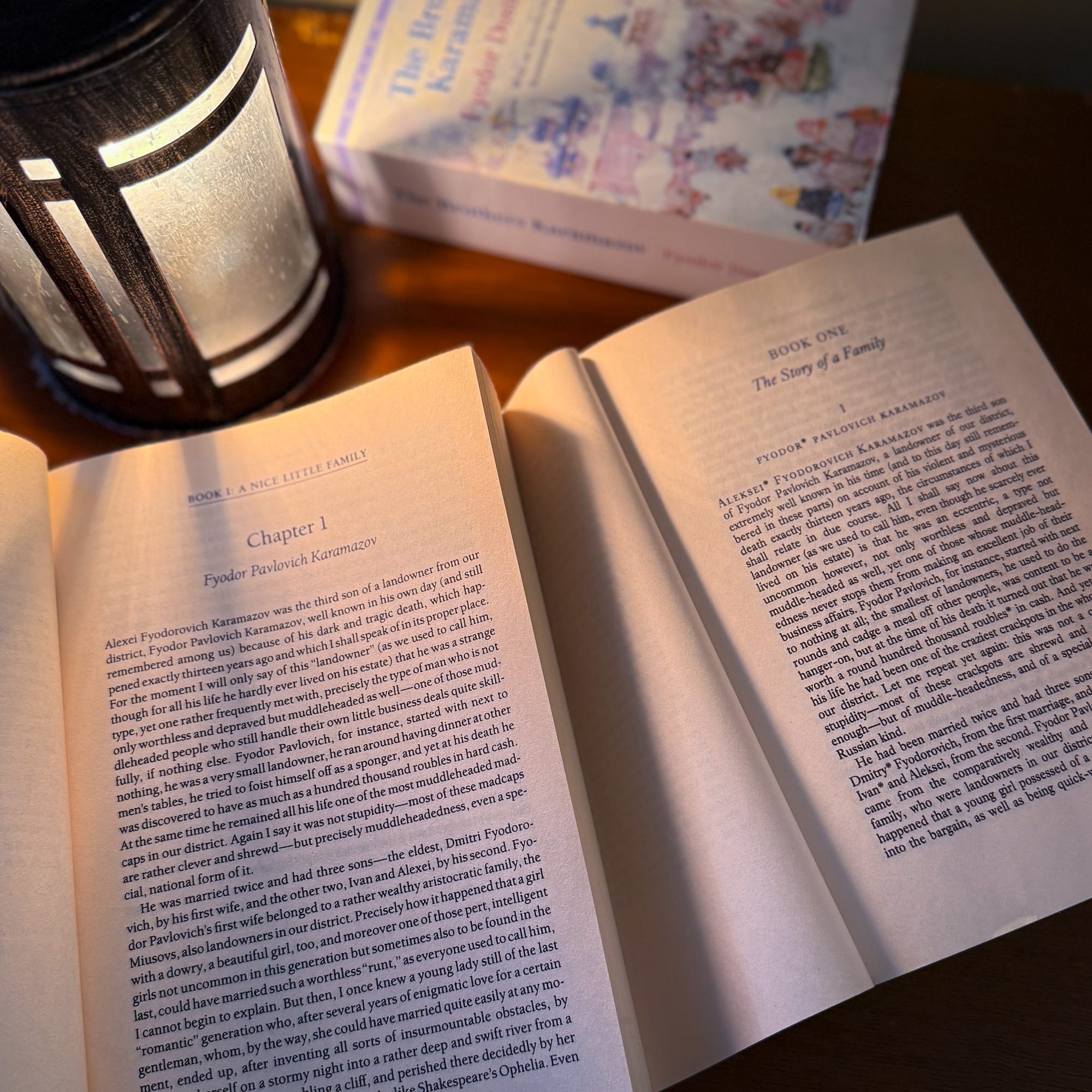
Then read the third paragraph, and so on. Each time reading the same paragraph/section in a different translation.
Right away (or after a few paragraphs) you should start to notice the ones you that are not right for you. Set those aside.
If you don’t notice right away, that is fine - just keep reading.
Soon there will be one (or two) that stand out as enjoyable for you. If you are stuck on two - that is fine - just keep reading.
As you keep reading back and forth between translations, you will just know the one that resonate with you and that you enjoy reading over all the others - it will be the one you don’t want to put down, the one that just feels right and fits your reading needs or style.
See how easy that was? You have just figured out what translation works for you personally.
Some notes:
- Everyone is different. Whereas one person wants something easier to understand, another person may like more poetic versions, and yet another person wants it to be close to the original word for word. Whichever reader you are - it's fine! - go with what works for YOU.
- Keep in mind that different times in your life = different reading needs. You are different at various stages. Whether you want to revel in the language or just understand, choose the translation for what season you are in and don't worry about it.
- Feel free to change things up - even if you are in the middle of it. (I switch translations and formats all the time.) There is nothing wrong with that! Don't feel like you have to stick with a translation or format if it is no longer working for you. Switch it up. Here are a few examples:
- When I was reading Dante's The Divine Comedy, I switched back and forth between Mandelbaum's gorgeous translation in book form and John Ciardi's easier to grasp one on my kindle. (Also, I got tired of flipping through to the back of the book and interrupting my reading flow to check out an endnote - on the kindle the endnote is a tap away and simply pops up on screen. However, I still loved the poetry of Mandelbaum's translation so I did go back and forth.)
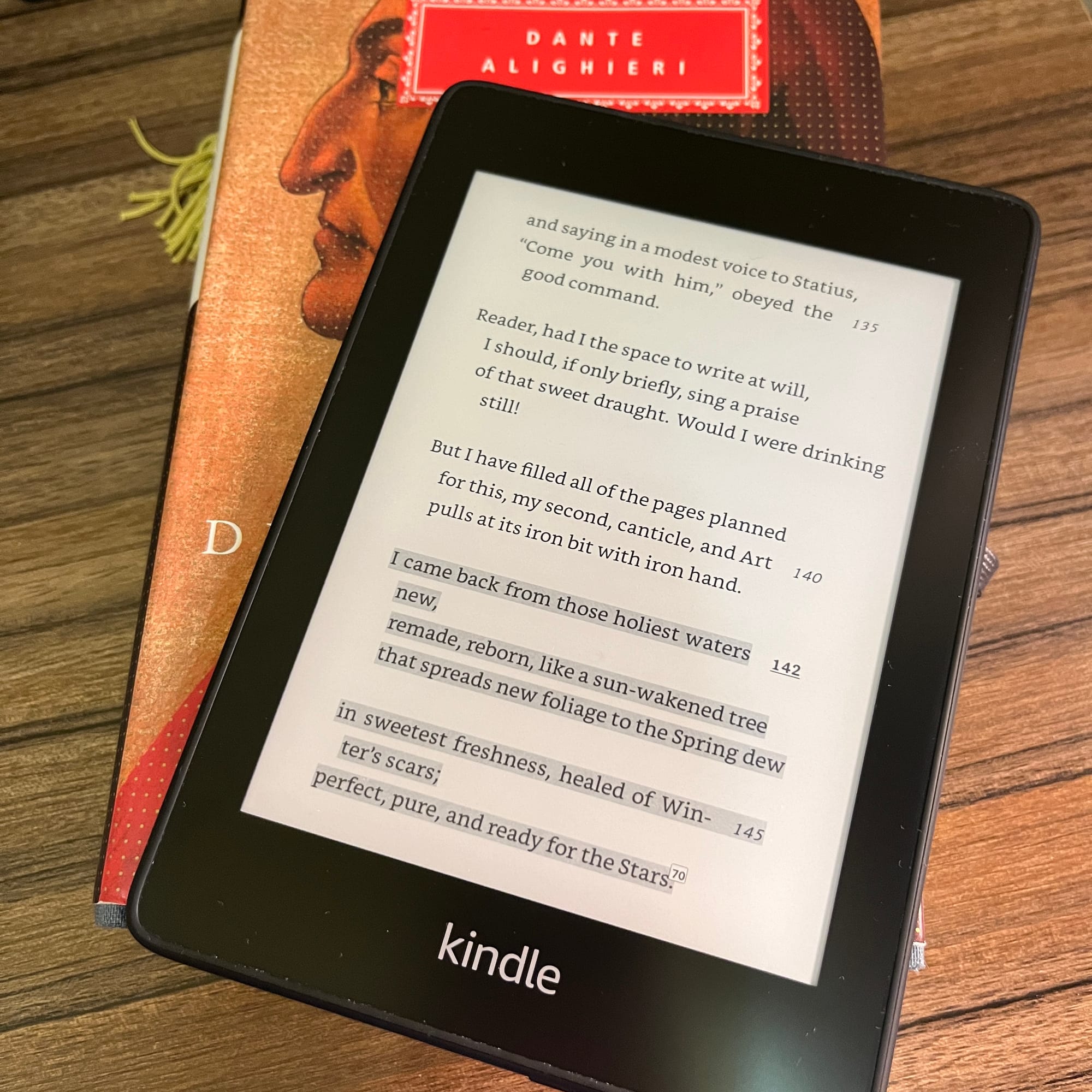
- I started Homer's The Iliad reading the Oxford World Classic's edition with Anthony Verity as the translator. Soon after (about halfway through) I saw the recently published translation by Emily Wilson's in a gorgeous hardback edition at the bookstore. Never able to resist a gorgeous book, I got Wilson's plainer poetic but captivating translation and finished The Iliad in that.)
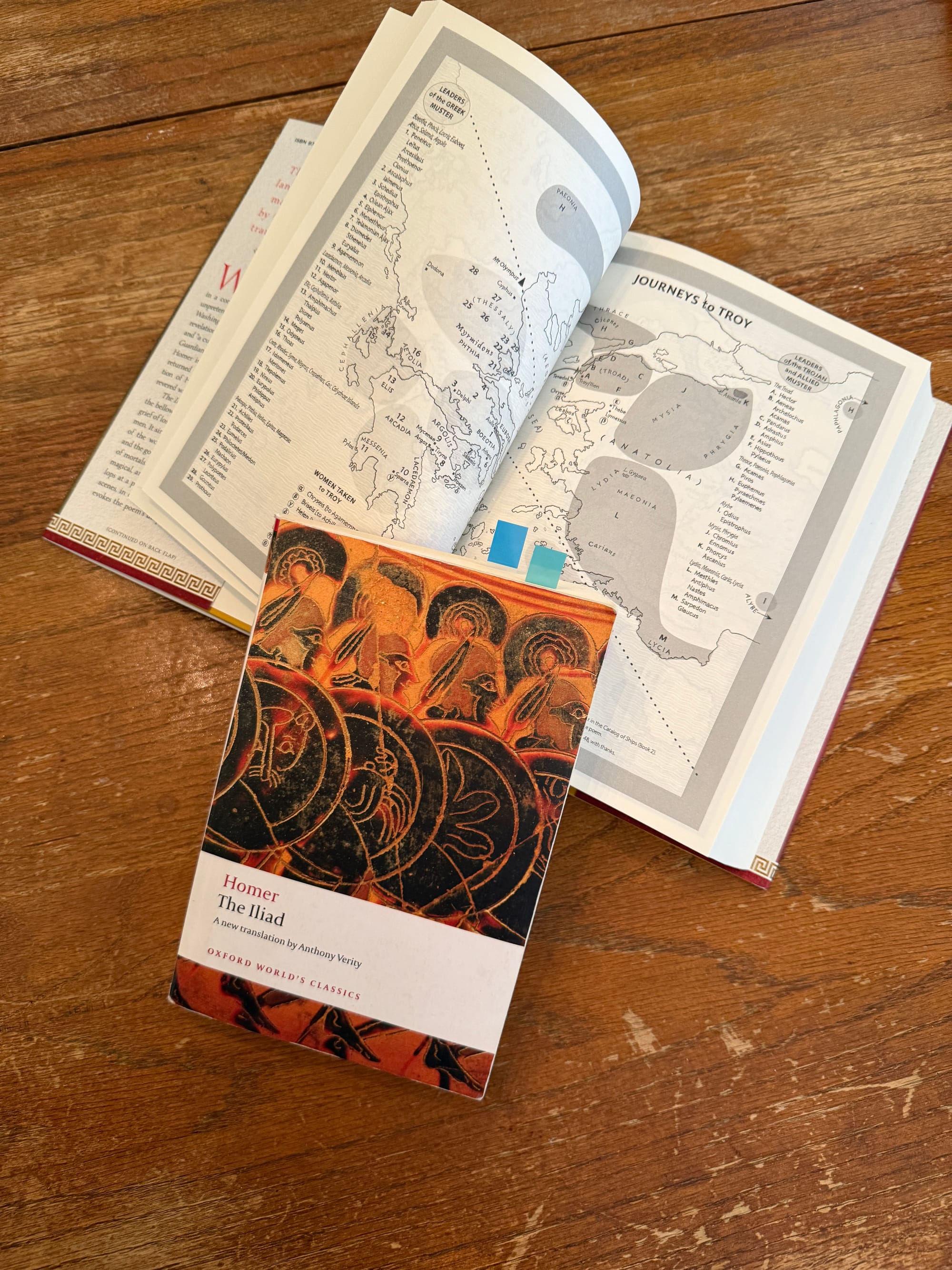
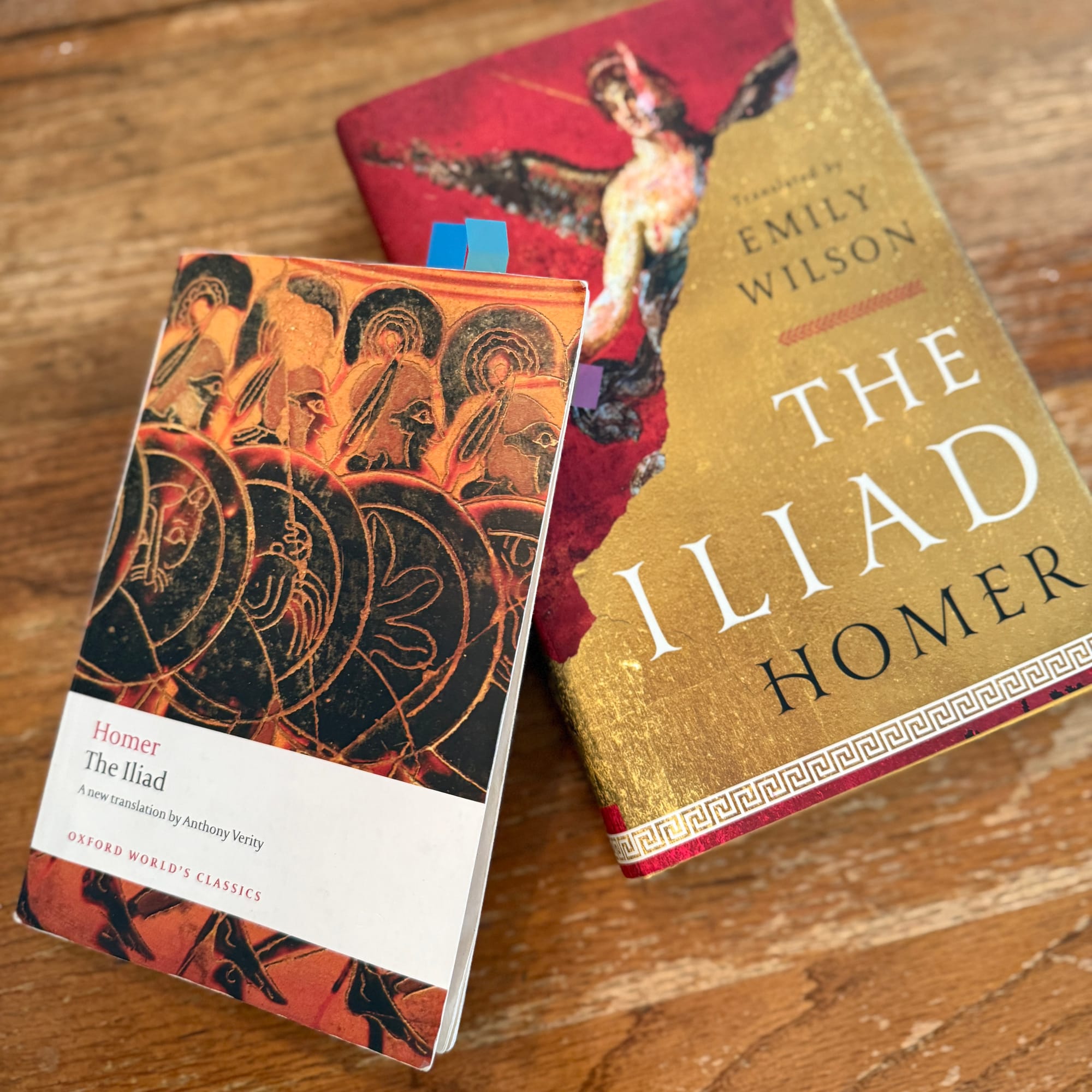
Oxford World's Classics are a favorite publisher of mine - but this new hardback edition in a new translation - well, I couldn't resist!
- You might also consider getting copies in a few different translations for comparison as you read - I find this to be the case more with poetry rather than prose.
- Stanley Lombardo's translation:
"Apollo heard his prayer and descended Olympus' crag
Pulsing with fury, bow slung over one shoulder,The arrows rattling in their case on his back
As the angry god moved like night down the mountain."
- Emily Wilson's translation is as follows:
"This was his prayer, and Phoebus heeded him.
Engraged at heart, he swooped down from the peaks
of Mount Olympus, bearing on his shoulders
his quiver and his bow, and as he moved
in rage, his arrows clattered at his back.
Like night the god descended."
- I love both of translations of this passage, but was especially struck with chills upon hearing "...the angry god moved like night down the mountain." while listening to the audiobook version of Stanley Lombardo's translation.
Which brings me to my last note...
- A good way to experience different translations is to listen to the audiobook in one and read it in another. I did that for both The Iliad and The Odyssey - listening to the Stanley Lombardo translations (which are excellent by the way) and reading Emily Wilson's.

The beautiful thing about translations is that later down the road when you want to re-visit that work again you can read it in a different translation and have a different experience of the same work.
Now that you know an easy way to choose a translation that resonates with YOU, go out there and immerse yourself in a whole new world of literature.
Happy reading!






